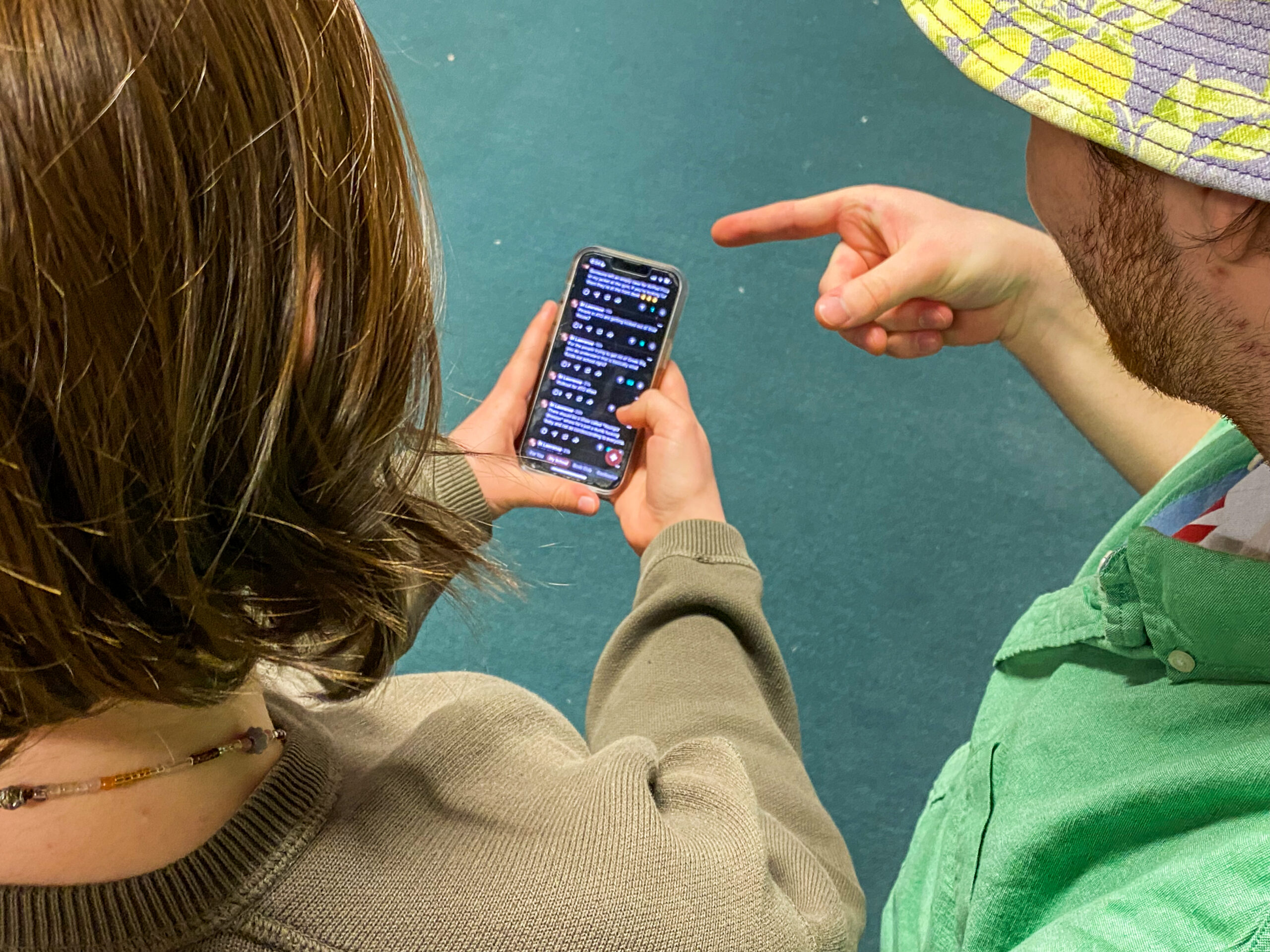YikYak at SLU: Put Your Name on It!
The St. Lawrence University herd on Yik Yak is the Wild West of social media communities. Stretches of random, innocuous-looking texts by anonymous sources roll by food reviews from Dana, hygiene habits, sports banter and tirades about unpopular campus figures.
Opinions pertaining to serious conversations are posted, too. This is, after all, a landscape free from the confines of bureaucratic structure and regulations. You can post anything you want on global issues without the hassle of checking your sources and see yourself become the person who generates the direction of discourse. Recently, posts regarding the student-led walkouts, condemning the genocide against Palestinian civilians on the Gazan Strip, flooded SLU’s Yik Yak feed.
Since Oct. 7, 2023, the world’s attention has turned towards the onslaught of violence in Palestine. On campus, where 198 out of the 2,100 students identify as international, some people will feel the repercussions of the ongoing crisis more than others. Some have turned to campaigning, which might pose a risk to their security in the United States. Yik Yakers and student activists alike are all exercising their rights to the First Amendment of the Constitution.
On-site reactions to the walkouts range from bewilderment, snickering, cautious encouragement, open gestures of solidarity, and the occasional instances of contempt. Pictures were taken without the consent of the students, and the air of hostility was palpable. As the demonstrations die down, however, most return to some semblance of regular life, hoping that their actions can help facilitate meaningful discussions in the community.
At the walkout, some voices lend themselves to the microphone, putting a name and face behind their opinions. There have been noises from the other side, however. The opposition mostly takes to social media. Yik Yak, in particular, has become a ground for anti-Palestine rhetoric.
Activists who openly call for the rights of civilians in Palestine to be respected have names and faces attached to them. They meet with the administration in the hopes of holding nuanced discussions around the issue that members of the community can fully participate in. Such gestures are often in vain. The opposition is nowhere to be found, at least physically.
Scrolling through Yik Yak, the posts are mainly reactions to certain students’ (mostly international, some from particularly vulnerable backgrounds) stances. Some are expressions of annoyance. Some preach about the supposed futility of protests against genocide. Some of them could be described as trolling. Some border on hate speech.
These posts are accompanied by troves of misinformation that a more discerning eye could identify through a simple Google search. Attempts at pushback are often blocked by unofficial moderators, referred to as “the tone police,” who downvote oppositional posts on the basis of being polarising or overtly political.
The more outrageous a post is, the higher the likelihood of receiving upvotes in triple digits. The lack of consequences afforded by anonymity is an opportunity. Posters run a race, conjuring extreme opinions in a net of online safety for some validation.
Perhaps several people post here. Or perhaps it might be the same people who happen to have hundreds of upvoters. Amusingly enough, the search for sources willing to admit, even anonymously, that they actively posted on YikYak was in vain.
Important world events occupy a large chunk of our attention, even if many of us are bystanders living in a comparatively privileged bubble of a college campus. Yet, the platforms for discourse never seem to hold space for nuanced conversation. Shortly after the barrage of anti-Palestine comments, Yik Yakers turned towards the developments in ATO. The discussions are as intense as they are fleeting.
An anonymous source, who identifies as an ally advocating for the ceasefire, speaks of the reluctance among students to hold difficult conversations. “As university students, we have more chances than anyone else to sit down and have difficult and constructive conversations with people we disagree with. They do not want to understand why we do what we do,” they say. “There is a fear of facing the consequences for saying something “wrong.” Acknowledging mistakes can be a learning experience.”
They continue by stressing that spreading online vitriol towards international, BIPOC, and LGBTQ+ students without consequence is harmful. They do, however, end the conversation by advocating for in-person conversations between people with such polarised opinions, hopeful that it may lead to a middle ground.
While many on Yik Yak are eager to point out that the protests are not doing anything to prevent the escalation of events, the effects are felt by SLU students. A source has mentioned a feeling of alienation among international students, noting that they have been unable to fully engage with the community on campus. They feel like their voices have been silenced. By losing the insights from international students with remarkable perspectives, SLU, as an intellectual community, would be worse off.
Given such observations, it is thus important to hold difficult conversations on issues that affect the lives of millions of people worldwide. And no, this does not mean that people use different platforms and audiences to escape the fear of pushback. Despite our illusions of safety and security, the world does not exist in a vacuum. Our opinions require ownership and periods of self-reflection. So yes, when it comes to saying what you want, don’t be afraid to put a name behind it.



